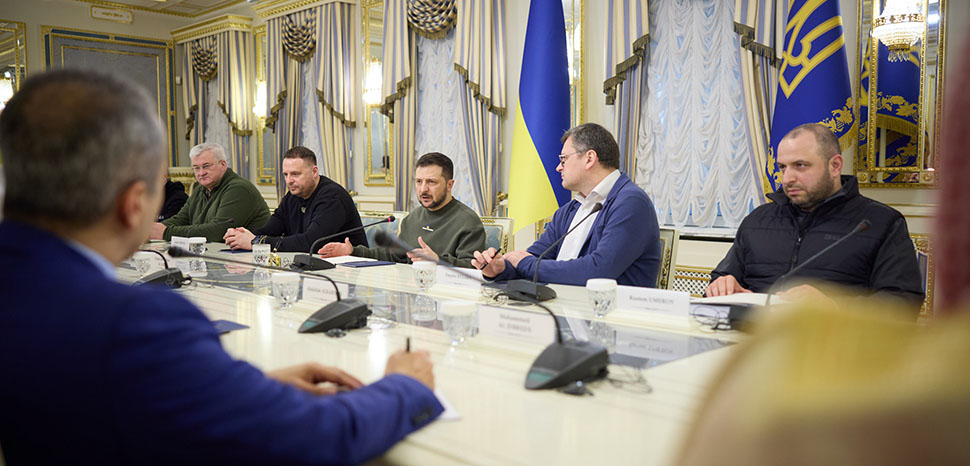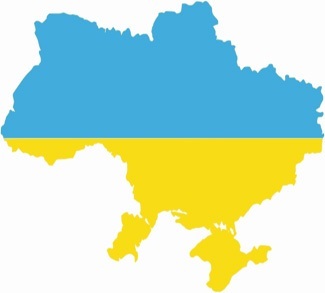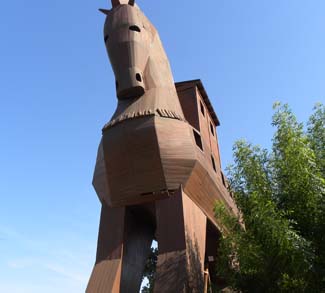The dismissal of Ukrainian defence minister Oleksii Reznikov over corruption allegations represents a significant shift in Ukraine’s wartime leadership well into the second year of Russia’s full-scale invasion. While Reznikov was not personally accused of corruption, allegations, and scandals over procurement practices within his ministry provided an avenue for him to depart for another government role, potentially as ambassador to the United Kingdom. Reznikov has been a constant presence throughout the course of the war, developing close bonds with defence ministers of NATO allies and helping Ukraine’s military become more advanced in preparation for eventual NATO membership. Reznikov’s successor, Rustem Umerov, comes from the Crimean Tatar community, a Muslim, Turkic ethnic group long oppressed and marginalized by Moscow and subject to forced deportations to Central Asia in 1944. Umerov’s own family was exiled to Soviet Uzbekistan under Stalin, where Umerov was born, prior to moving back to Crimea when Tatars were allowed to return in the 1980s and 90s. As such, in choosing Umerov, Ukraine is signaling that Crimea is essential to its future as a European state, and that a multi-ethnic Ukraine imbued with civic nationalism is essential to its survival and legitimacy.
Umerov is taking over at a decisive moment for Ukraine in its war against Russian aggression. As Russia scholars and military analysts Michael Kofman and Rob Lee have recently argued, Ukraine’s counteroffensive is undoubtedly moving at a slow pace, but it is far too early to say that it has failed. Significant momentum is within reach for Ukraine so long as Western countries intensify their support of critical military hardware and “think beyond the offensive” for Ukraine’s long-term security needs. Umerov’s appointment is significant not just for the war effort and eliminating corruption on the battlefield, but for accelerating Kyiv’s anti-corruption reform efforts as it proceeds along the path to EU membership. Prior to his new role, Umerov led the State Property Fund in Ukraine, a government regulator formed at the time of Ukraine’s independence in 1991 and responsible for privatization, the management of state property, leases, and professional valuations. Umerov’s management of one of Ukraine’s institutions long plagued by corruption has been widely praised and bodes well for his transition over to the defence ministry.
Most significantly, Ukraine is developing a new class of Western-aligned technocrats that have come of age in the decade after the collapse of the Soviet Union and have advanced professionally in a Ukraine inching gradually closer to the West. Umerov’s personal history spans the long arc of Russian aggression against Ukraine, and particularly the Tatars, from the Stalin era deportations to the illegal annexation of Crimea in 2014. Should Umerov and President Zelenskyy work effectively as a team, as all indications suggest they will, it will signal to both Europe and Russia that a multi-ethnic Ukraine is capable not just of governing itself but of providing a pathway for other former Soviet states to follow. This stands in sharp contrast to Russia and its treatment of its own ethnic minorities, currently more likely to be used as cannon fodder rather than be able to climb up the leadership ranks in the Russian Defence Ministry.
While there are many reasons for optimism regarding Ukraine’s future, an uphill battle still awaits. Internally, Ukraine has made sizable gains in recent years but ranks 116th out of 180 on Transparency International’s Corruption Perceptions Index, behind Belarus and Moldova but ahead of Russia. Joining the EU is not automatically a safeguard against anti-democratic and corrupt behavior, as the cases of Poland, Hungary, Slovakia, and Bulgaria reveal. Bulgaria, the EU’s poorest member state, is perhaps the best comparison given an entrenched oligarch class with ties to both Russian industry and organized crime continues to cause periodic political instability. Slovakia is another example of how an EU member state can emerge early on as one of Ukraine’s closest allies in Central Europe but risk reverting to the pro-Russia, illiberal rule of former Prime Minister Robert Fico in this month’s upcoming elections.
Ukraine’s greatest advantage, however, is that its near decade-long battle with Moscow has caused anti-Russian sentiment to harden across multiple regions, forming a pro-European identity that was well developed prior to Kyiv even formally embarking on the EU accession path. Umerov is a powerful symbol of a Ukraine in which multiple groups with divergent histories of acceptance or displacement can cohabit a space seen by Moscow as lacking any unifying structure or qualifications for statehood. Thus, the next phase of the war under Umerov, both on and off the battlefield, will help determine the contours of Ukraine’s future entry into Europe as a multi-ethnic state guided by civic nationalism, the opposite of Kyiv’s artificiality as perceived by the Kremlin.
The views expressed in this article belong to the authors alone and do not necessarily reflect those of Geopoliticalmonitor.com.




